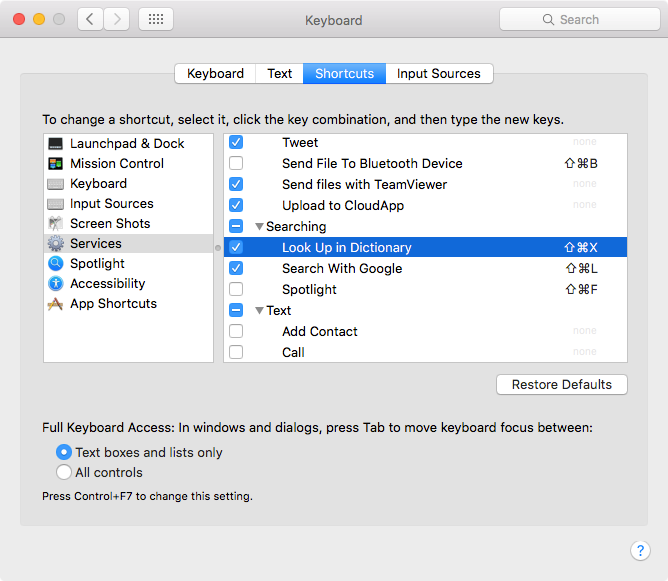
- #Keystroke for screenshot in mac os how to#
- #Keystroke for screenshot in mac os mac os x#
- #Keystroke for screenshot in mac os portable#
- #Keystroke for screenshot in mac os free#
- #Keystroke for screenshot in mac os windows#
Selection - This works similar to the Control+Shift+4 keystroke, in that you're prompted to select a rectangular portion of the screen. With Grab active, choose one of the following options under the Capture menu: When you're ready to take a screenshot, click the Grab icon to bring it to the forefront. Instead, you'll just have the Grab icon in your Dock, showing that the app is running, and the Grab menu across the top when the app is in the forefront. When using Grab, you won't see an application window on the screen until you've captured something. Double-click to open the app from there in the Finder.

To open Grab, open your Finder, select "applications" under "places," and expand "utilities." Grab should be one of the utilities listed there. Grab offers more features than keystrokes alone when capturing images from your Mac's computer screen.
#Keystroke for screenshot in mac os how to#
Next, let's take a look at how to use Grab, including how to capture a specific window and how to time the capture to include things like mouse-over text or drop-down menus. While keystrokes let you get a quick capture from the screen, they have limited options for what you're capturing. Later, we'll look at how you can convert any of these images to other file formats.
#Keystroke for screenshot in mac os portable#
Macs switched to portable document format (PDF) starting in the 10.2 release of OS X, and to portable network graphics (PNG) files by 10.6.
#Keystroke for screenshot in mac os mac os x#
Mac OS X traditionally saved keyboard-generated screenshots as tagged image file format (TIFF) files.

#Keystroke for screenshot in mac os windows#
To see the files you're saving, you'll have to either open your Finder or minimize your windows to find the images saved on the desktop. Instead, the system just plays a chime that sounds like a film camera snapping a photo. When you're capturing images this way, you won't see any system or app notifications to verify success.

If you don't use the Control key, your Mac saves these keystroke captures to your desktop by default. That allows you to copy and paste what you see on the screen into an application, such as image editing software. Your cursor immediately returns to normal after that selection.Ĭontrol added to the start of either of these sequences saves the image to the clipboard temporarily instead of to a permanent file. Click and drag the tool to make your selection. All the screenshots taken on macOS laptops will be stored on your desktop by default.Command+Shift+3 captures the entire screen and saves it to a file on your desktop.Ĭommand+Shift+4 temporarily replaces your mouse cursor with a tool to select any rectangular portion of the screen. This option is only available for the MacBook version with a touch bar. You can simply press the ‘enter’ key or select the option, ‘Capture selected portion’ from the small panel below.
#Keystroke for screenshot in mac os free#
This option gives you a free hand over the screenshot.

Press the ‘PrtScn’ button with the ‘Alt’ key to take a screenshot. Similar to the method mentioned above, this option copies the active window the screen on which you’re working. Save the image wherever you want to, giving a file name to the image. It is usually located in the top row near the function keys. The simplest way to capture a screenshot is to press the Windows Key and the ‘PrtScn’ (PrintScreen) button together.


 0 kommentar(er)
0 kommentar(er)
